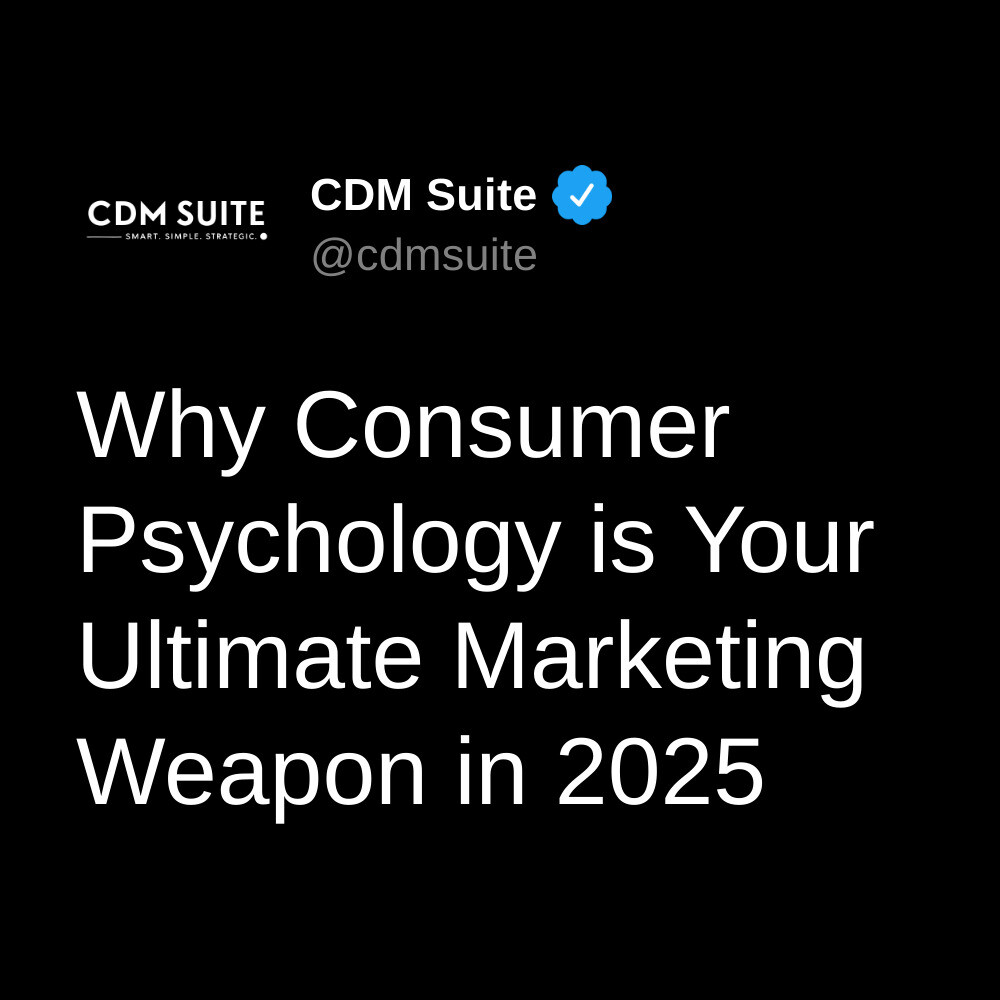Why Consumer Psychology is Your Ultimate Marketing Weapon in 2025
Imagine having the power to predict your customers’ every move, to understand their deepest desires, and to craft marketing messages that resonate so deeply they can’t help but take action. This isn’t science fiction—it’s the reality of mastering consumer psychology in 2025. As we navigate an increasingly complex digital landscape, understanding the inner workings of your target audience’s mind has become the ultimate marketing superpower.
In today’s hyper-competitive market, where consumers are bombarded with countless marketing messages every day, the ability to cut through the noise and truly connect with your audience is invaluable. Consumer psychology gives you that edge, allowing you to create marketing strategies that don’t just reach your audience, but truly resonate with them on a fundamental level.
The Shifting Landscape of Consumer Behavior in 2025
As we look at the current state of consumer behavior, several key trends have emerged that are reshaping the marketing landscape:
- Inflation-driven deal-seeking: With economic pressures mounting, 40% of consumers are now opting for store-brand alternatives over their favorite labels. This shift towards value-conscious shopping requires marketers to rethink their pricing and promotional strategies.
- Waning brand loyalty: The days of unwavering brand allegiance are fading. Consumers are more willing than ever to switch brands if they feel their needs aren’t being met. This puts increased pressure on marketers to consistently deliver exceptional experiences.
- Social media as a discovery powerhouse: Social platforms have solidified their role as primary channels for product discovery. Marketers must optimize their social media presence to capitalize on this trend.
- Rising demand for personalization: Consumers expect tailored experiences, but the nature of personalization is evolving. Striking the right balance between customization and privacy is crucial.
- Heightened expectations across the board: From seamless omnichannel experiences to sustainable practices, consumers are demanding more from brands than ever before.
Understanding these trends is just the beginning. The real power lies in leveraging consumer psychology to address these shifts effectively.
The Psychology Behind Consumer Decisions
At its core, consumer psychology is about understanding the cognitive processes that drive purchasing decisions. By tapping into these psychological principles, marketers can create more compelling and effective campaigns.
The Power of Reciprocity
One of the most potent psychological triggers in marketing is reciprocity. When we receive something of value, we feel compelled to give something back. This principle explains why free samples, valuable content, and personalized gifts can be so effective in building customer relationships.
For example, a software company offering a free e-book or trial period isn’t just showcasing their product—they’re activating the reciprocity principle, making customers more likely to consider a purchase.
Scarcity and FOMO (Fear of Missing Out)
The scarcity principle taps into our innate fear of missing out. When something is perceived as rare or limited, its perceived value increases. This is why limited-time offers and exclusive deals can be so compelling.
In 2025, with consumers more value-conscious than ever, leveraging scarcity marketing tactically can be a powerful way to drive conversions. However, it’s crucial to use this principle ethically and avoid creating false scarcity, which can damage trust.
The Anchoring Effect
The anchoring effect refers to our tendency to rely heavily on the first piece of information we receive when making decisions. In marketing, this can be used to influence price perceptions and purchasing decisions.
For instance, presenting a higher-priced option first can make subsequent offerings seem more reasonable by comparison. This principle is particularly relevant in 2025, as consumers are increasingly price-sensitive due to economic pressures.
Practical Applications of Consumer Psychology in Marketing
Understanding these psychological principles is one thing—applying them effectively is another. Here are some practical ways to leverage consumer psychology in your 2025 marketing strategy:
- Personalization with a purpose: With consumers demanding more personalized experiences, use data-driven insights to tailor your marketing messages. However, be mindful of privacy concerns. Focus on delivering value through personalization, rather than just showing off how much you know about the customer.
- Build trust through transparency: As brand loyalty wanes, building trust becomes more critical than ever. Be transparent about your practices, especially regarding data usage and sustainability efforts. This aligns with the psychological principle of social proof—people are more likely to trust brands that others vouch for.
- Leverage the power of storytelling: Human brains are wired for stories. Use narrative techniques in your marketing to create emotional connections with your audience. This taps into the psychological concept of emotional contagion, where emotions can spread from one person to another.
- Optimize for mobile and voice search: With the continued rise of mobile and voice-activated devices, ensure your marketing strategy is optimized for these platforms. This aligns with the principle of cognitive ease—making it as simple as possible for consumers to find and interact with your brand.
- Use social proof strategically: In an era of declining brand loyalty, social proof becomes even more powerful. Showcase customer reviews, testimonials, and user-generated content to build credibility and trust.
The Ethical Considerations of Consumer Psychology
While understanding and leveraging consumer psychology can be incredibly powerful, it’s crucial to approach this knowledge ethically. The goal should be to create win-win situations where both the brand and the consumer benefit.
Transparency is key. Be upfront about your marketing practices and data usage. Avoid manipulative tactics that exploit psychological vulnerabilities. Instead, focus on using your understanding of consumer psychology to create genuinely valuable and enjoyable experiences for your audience.
The Future of Consumer Psychology in Marketing
As we look beyond 2025, the intersection of consumer psychology and technology is likely to become even more pronounced. Advances in AI and machine learning will allow for even more sophisticated analysis of consumer behavior and preferences. Virtual and augmented reality technologies will create new opportunities for immersive brand experiences that tap into deep psychological drivers.
However, the fundamental principles of consumer psychology—the need for connection, the power of emotion, the influence of social proof—will remain constant. The marketers who succeed will be those who can blend cutting-edge technology with a deep understanding of these timeless psychological truths.
Conclusion: Harnessing Your Marketing Superpower
Understanding consumer psychology is indeed a marketing superpower—one that’s more relevant and powerful than ever in 2025. By delving into the minds of your customers, you can create marketing strategies that don’t just reach your audience, but truly resonate with them on a fundamental level.
Remember, with great power comes great responsibility. Use your understanding of consumer psychology to create value, build trust, and foster genuine connections with your audience. In doing so, you’ll not only drive business success but also contribute to a more transparent and customer-centric marketing landscape.
Ready to take your marketing strategy to the next level? Visit our free 3-minute marketing assessment to get a custom growth plan tailored to your business. Discover exactly what’s missing in your current strategy and how you can leverage consumer psychology to supercharge your marketing efforts. Don’t just market—connect, engage, and inspire with the power of consumer psychology!


